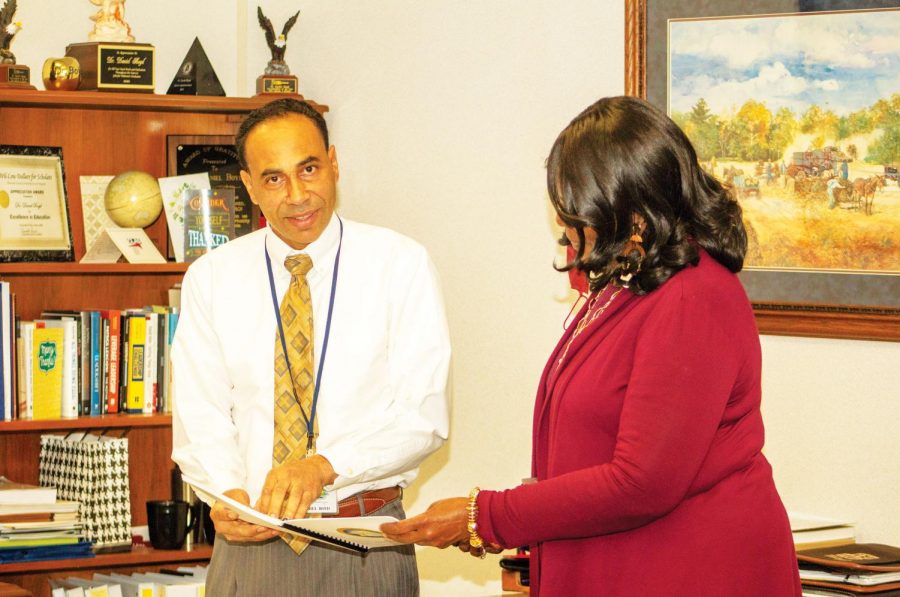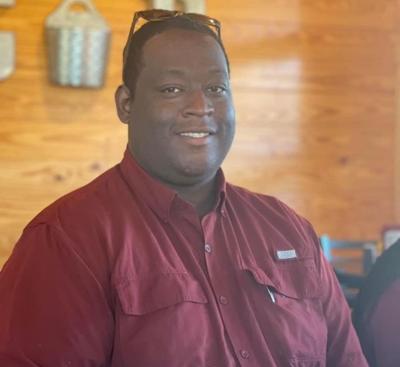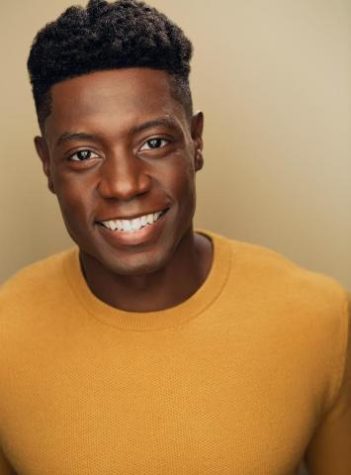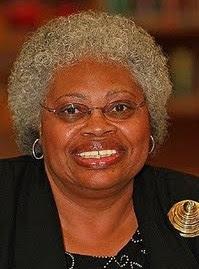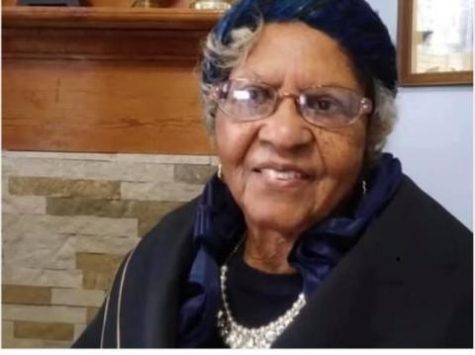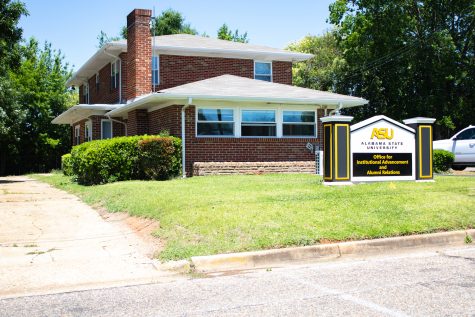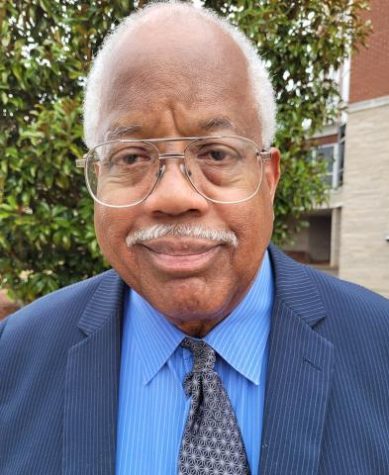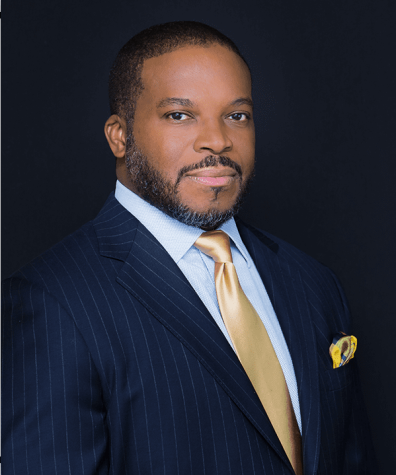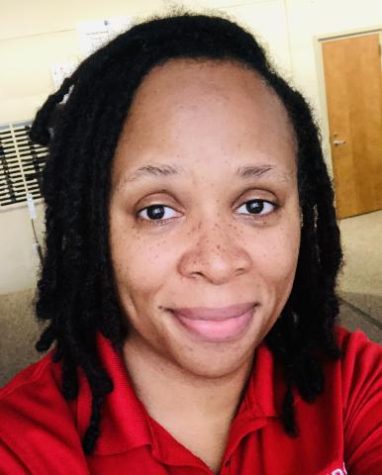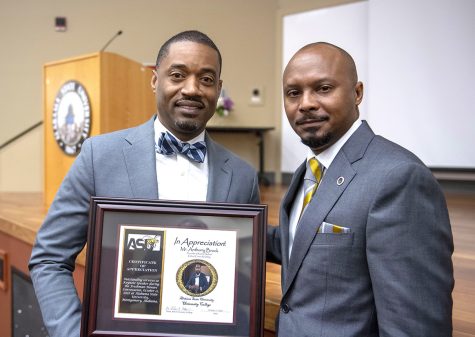Boyd enjoys serving students as one of the state’s top administrators
Deputy Superintendent of Education Daniel Boyd explains some new procedures to his administrative assistant.
February 10, 2021
The late scholar W.E.B DuBois once said, “The return from your work must be the satisfaction which that work brings you and the world’s need for that work. With this, life is heaven; or as near as heaven can get.”
This quote is reality in the case of Alabama State University alumnus Daniel Boyd, Ph.D, who lives blissfully, working as the deputy superintendent for the State of Alabama Department of Education.
A recipient of five degrees, Boyd dedicates his busy days to ensuring that the students of the entire state of Alabama have access to the best education possible.
Though it can be a hassle managing it all, Boyd has a simple way to keep himself motivated.
“Remembering the reason why I come to work is to help children, to grow them into individuals,” Boyd said. “That makes it all worthwhile.”
Originating from Cecilia, La., Boyd grew up with both parents and four siblings. As a child he enjoyed doing handiwork around the house, he dabbled in woodworking and spent much time in his family’s garden.
Embracing his studious nature at an early age, he developed an interest in reading. His favorite childhood book being Of Mice and Men (1937) by John Steinbeck, following the journey of two migrant farmers as they struggle to work, live, and save money during the Great Depression.
Boyd attended Cecilia High School, where he participated in various merit focused clubs, two of those being Honors Society and the Science Club. These clubs worked to incorporate the content that is learned in the classroom, back into the community.
 They participated in fundraisers for the school, school beautification projects, community service, university tours and more. Referring to the Science Club that provided advanced science and math topics, he shares, “We competed in lots of Math Olympiads and Science Fairs.”
They participated in fundraisers for the school, school beautification projects, community service, university tours and more. Referring to the Science Club that provided advanced science and math topics, he shares, “We competed in lots of Math Olympiads and Science Fairs.”
He graduated from Cecilia High in the spring of 1982.
Boyd began his college career at the University of Louisiana at Lafayette (UL-L) in Lafayette, La., right next to his hometown. He utilized his strengths in the fields of math and science, today known as STEM, at this university to complete his first bachelor’s degree.
“I had a love for science and math early on, so I always enjoyed those classes,” he said. In 1986, Boyd graduated from UL-L with a degree in petroleum engineering technology. With this esteemed degree, he was able to find work in the petroleum oil rig and restaurant industries.
After being in the workforce for some years, Boyd began to consider going back to school, but for another undergraduate degree rather than a graduate.
Conversations with his good friend, Allen Stewart, Ph.D., a retired Alabama State University professor, encouraged him to follow his pursuit of a deeper, and more meaningful education.
“He [Stewart] would talk to me about the advantages of going back to school, and he convinced me to consider ASU,” Boyd said.
Today, Boyd expresses gratitude to Stewart, as those conversations led him to the university that he credits much of his success.
In 1991, Boyd joined the Hornet family on an academic scholarship, seeking a degree in biology with dreams of someday attending medical school. With a bachelor’s degree already under his belt, he entered the university with a more focused and objective mindset than he had at UL-L.
“They were completely different experiences,” Boyd said. “Of course I was much older when I arrived at ASU, so I was looking through a different lens. I felt that at ASU I was a part of something big.”
Though he was not a traditional first-year undergraduate student, his ASU peers and professors treated him with the same care and respect as any other student.
“I really had an excellent experience at ASU,” he shares. “I made some really good friends that I still have to this day. And the professors I had were really amazing. They were second to none, always willing to go the extra mile to help their students.”
In a way, his maturity allowed him to identify and appreciate the life lessons, professional opportunities, and black pride that the Hornet community had to offer.
“They taught us a whole lot more than just content material,” he earnestly said.
The professors made a lasting impact on Boyd’s life considering they instilled core values into him, on top of the curriculum they provided. He remembers James Olivier, Ph.D., who taught a biology course; Wallace Maryland’s, Ph.D., calculus class, and Thelma Ivory’s, Ed.D., organic chemistry class.
“Not only were they good teachers, but they were also great motivators,” Boyd said. They believed in instilling the importance of doing the best you can at all times.”
In 1995, Boyd graduated with a bachelor’s degree in biology and a chemistry minor. He enjoyed his time at the Hornet’s Nest so much that he decided to continue his education with two graduate degrees.
“The classes were nice. We were treated as adults so it was a nice environment,” he said. In 1997, he received his master’s degree in and then in 1999, he earned his education specialist degree in instructional leadership.
“It taught me how to work hard, how to work with people,” Boyd said.
These teamwork skills would prove to be vital for Boyd as he advanced through the administrative positions in his career.
In 2005, he earned a doctorate in education from the University of Alabama.
“More than anything it instilled something more than just math and science,” Boyd said. “It instilled the belief that I could do anything I wanted to do.”
While as a graduate student working towards his master’s degree, Boyd also worked a full-time job.
In 1996, he accepted a position teaching biology at Sidney Lanier High School in Montgomery, Ala. At this time he had dreams of going to medical school, but developed a passion for instructing that changed his plans.
“I ended up liking teaching a whole lot, and I never left,” Boyd said.
He always knew that he wanted to help people, and he realized that his way to touch lives was by educating as many people as possible.
When discussing what made him remain in education, he said, “The pleasure of knowing that I could help a student succeed in something. The pleasure of knowing that I can motivate a student to achieve things that they did not know they were capable of.”
After three years as a teacher, Boyd was promoted to an administrative position as the Director of National Science Initiative for Montgomery Public Schools.
In this role, he worked tirelessly to implement improved teaching and learning methods of math and science in Montgomery schools. Though he was no longer hands-on and in the classroom, he found a liking to administrative positions as they allowed him to impact more children’s lives. He kept this position for two years, but was offered the job by Lowndes County superintendent, John Covington, Ph.D., to be assistant superintendent of Lowndes County.
During his five years in this position, Boyd was responsible for child nutrition, transportation, maintenance and construction projects, and managing textbooks for the schools of Lowndes County.
In 2006, the superintendent position opened as Covington moved on to another career opportunity.
“I applied for the superintendent job and was interviewed along with seven other candidates,” Boyd said. “Soon after the school district selected me as the next superintendent of Lowndes County.”
He is especially proud of his time as superintendent considering he led in this role for twelve consecutive years. During his long run, he worked to ensure that students were given endless opportunities to better themselves in all areas of curriculum, to prepare them for the workforce, and to keep them healthy physically and mentally.
Boyd’s work as the superintendent ceased in 2018 when he was offered the position of Deputy State Superintendent of Education, where he would supervise curriculum instruction.
“I was honored to be offered that position so I accepted it,” Boyd said. “So I have been at the state department for two and a half years and I absolutely love the job.”
It is a high level job with many responsibilities and demands, but Boyd’s passion for instructing, though indirectly, outweighs any stress that the position may cause. To keep himself motivated and productive, he remembers a bible verse that his grandmother taught him, “To whom much is given, much will be required.” (Luke 12:48)
“In my current position I am responsible for all things teaching, learning, and anything related to the curriculum for the state of Alabama,” he said.
Being in a supervisory position, Boyd sits at the head of many sections that turn to him for questions, ideas, problems, and research. These sections are Student Learning, where they decide on the curriculum for every course being taught at every school in Alabama; the Alabama Reading Initiative, where language coaches and reading specialists train language arts instructors; Student Support, a program designed to create a safe space that caters to the student’ mental health; Career and Technical Education, specialized training for career pathway teachers; Teacher Preparation Program, which decided curriculum at the collegiate level; and the Measurement and Analysis section that analyzes data collected from standardized tests.
In such a demanding position filled with emails, phone calls, and meetings, Boyd appreciates his team of colleagues that help manage his array of sections.
“I love them all!” he said. “I really have a wonderful team.”
He especially appreciates the work of Jane Meyer, Ed.D., who works diligently in the Teacher Preparation Program.
“She has been working with us for over 40 years and has a wealth of knowledge to share,” he said.
This ability to effectively lead and collaborate amongst a group stems from Boyd’s time receiving his graduate degrees from ASU. With the goal being to help as many students as possible, this group puts the state of Alabama’s best minds to do so.
“It is through the process of understanding each other and understanding the concerns that we are able to come up with a solution,” Boyd said.
Due to the COVID-19 pandemic and altered work dynamics, Boyd has showcased his resilience and determination to get the job done. He considers those two character traits to be the qualities that have allowed him to grow into the successful man that he is today.
“We all face challenges regardless of the job we have,” Boyd said. “It is important that no matter what has happened, that we do not accept defeat. It may be a bad incident but do not ever see it as defeat. You determine your own success.”
Today, Boyd lengthens his legacy through his son, Jordan Boyd (28) who works in the information technology field. He shares his life with his wife of 15 years, Lynn Boyd, who he met while as a graduate student at ASU.
While he worked towards his master’s degree she worked for the ASU biomedical research program. They both worked for the Health Careers Opportunity Program, a summer program that taught biology to high school students.
“We would go on these trips to chaperone the children and we would just talk about different things,” he said. “When the summer ended we went on a date to the movies, one thing led to another, and now we are happily married!”
And just as when he was a child, Boyd still holds an interest in woodworking and gardening.
Grateful for the camaraderie and guidance that he received during his time as a Hornet, Boyd hopes to inspire current ASU students.
“Learn as much as you can and do the best you can,” he advises. “These are two simple things but they are very, very important!”
He said that students who are always learning and always striving for success will be able to conquer any opportunity thrown their way. It was Boyd’s love for learning that opened the door to a career that he loves even more.


